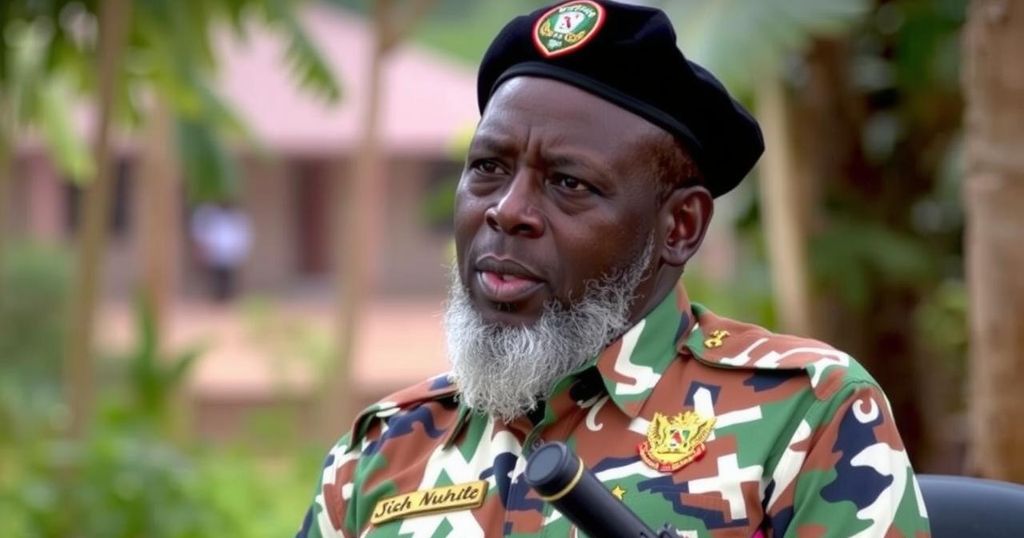Congo Bans Al Jazeera Following Interview with Rebel Leader Bisimwa

The Republic of Congo has banned Al Jazeera after it interviewed M23 rebel leader Bertrand Bisimwa, leading to claims of supporting terrorism. Government officials revoked Al Jazeera’s credentials and issued severe warnings for journalists covering the M23. The ban has drawn criticism for violating press freedoms and suppressing dissenting voices during ongoing conflict in the region.
The Republic of Congo has officially banned Al Jazeera, following the network’s interview with Bertrand Bisimwa, the leader of the M23 rebel group, which has recently expanded its territorial control in eastern Congo. The Congolese government, represented by spokesperson Patrick Muyaya, claimed that Al Jazeera had conducted the interview with a member of a “terror organization” without proper accreditation, leading to the revocation of its press credentials in the country.
In the contentious interview aired on Wednesday, Bisimwa criticized the Congolese government for breaching a ceasefire agreement established in August, stating that M23 is engaged in an “existential war.” The M23 group operates in a region plagued by approximately 100 active armed factions, contributing to significant displacement of over a million individuals last year.
Amid these developments, Congolese authorities have labeled Al Jazeera’s actions as tantamount to supporting terrorism. Moreover, Justice Minister Constant Mutamba issued a stark warning on social media regarding legal repercussions for those reporting on the activities of the M23 or the Rwandan army, alluding to extreme measures such as the death penalty.
While the government claims such statements are aimed at enemy propagandists, opposition voices like Hervé Diakiese condemned the ban, advocating for freedom of expression even in contentious matters. Activist Jacques Issongo echoed this sentiment, arguing for the necessity of diverse media representation. Furthermore, the media regulatory body in Congo has cautioned French news outlets over their reporting on the M23 insurgency, indicating a broader crackdown on independent journalism.
The Republic of Congo has faced ongoing instability due to the presence of numerous armed groups, with the M23 emerging as a notable faction. This conflict has led to significant humanitarian crises, including widespread displacement and violence, particularly near the border with Rwanda. In recent months, the Congolese government has intensified media restrictions, particularly against foreign broadcasters perceived as sympathetic to insurgent claims. The issue of freedom of press within volatile regions like Congo continues to spark debate and concern among activists and opposition figures.
The ban on Al Jazeera highlights the Congolese government’s increasing intolerance towards dissenting voices and transparency in reporting, particularly regarding the M23 rebellion. This situation raises critical questions about press freedom and the implications of governmental censorship in times of conflict. As calls for diverse perspectives and accountability grow louder, the international community’s attention to human rights and journalistic integrity in Congo becomes ever more essential.
Original Source: www.washingtonpost.com






